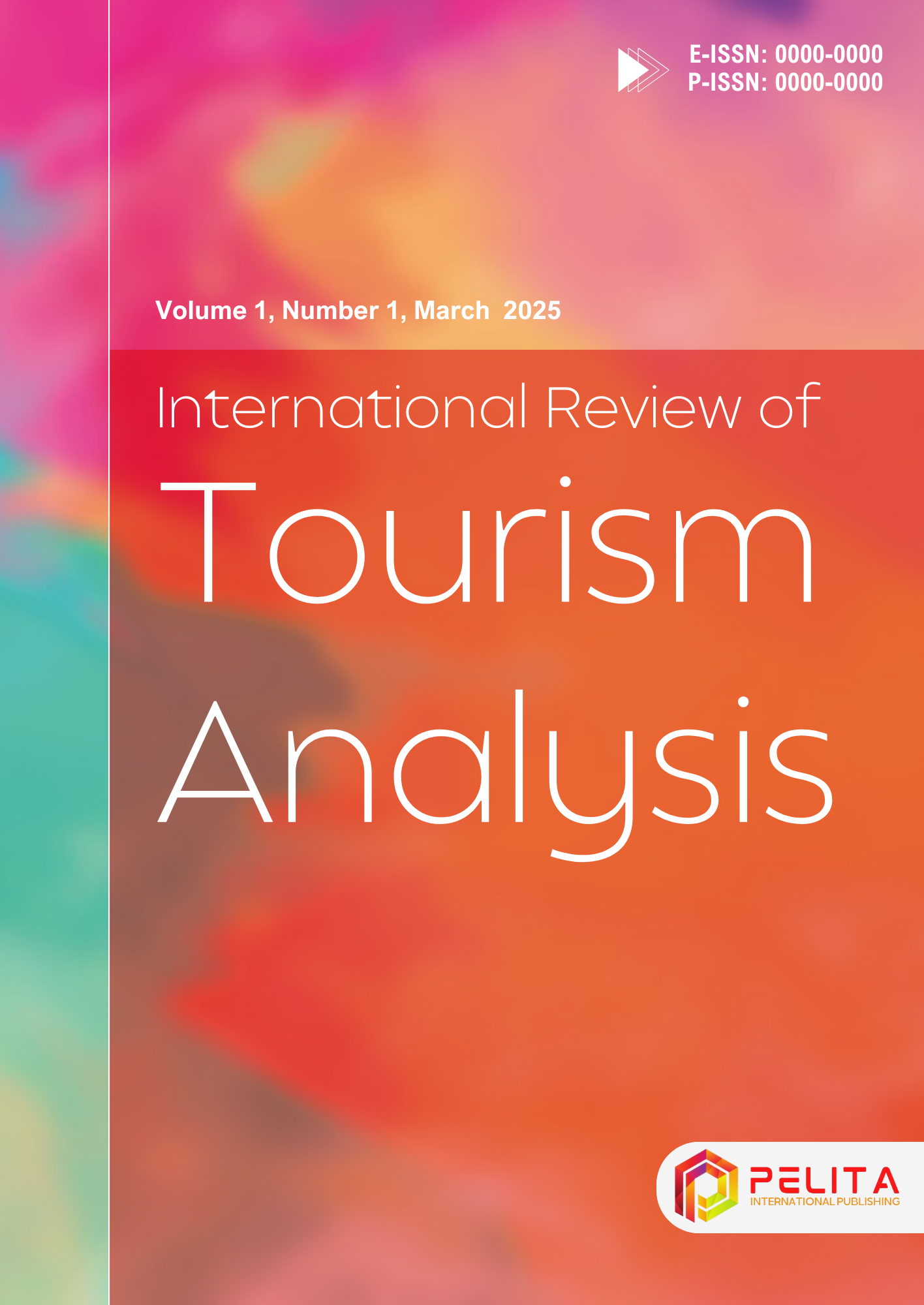Development strategies for the culinary industry to promote tourism: A SWOT analysis
Main Article Content
Dara Balqis
Puti Andiny
Safuridar
This study aims to formulate development strategies for the culinary industry to promote tourism in Langsa City, Aceh. The research employs both primary and secondary data. Primary data were obtained through direct observation, questionnaires, and interviews with relevant stakeholders, while secondary data were gathered from official documents and literature. The analytical method used in this study is SWOT (Strengths, Weaknesses, Opportunities, Threats) analysis. The results identify seven prioritized strategies to enhance the culinary industry’s role in supporting tourism development: (1) organizing special events to promote local culinary products, (2) providing government-supported media and strategic venues free of charge, (3) conducting training on digital marketing, (4) developing designated culinary areas in tourist locations, (5) offering packaging standardization training, (6) fostering creativity among culinary entrepreneurs, and (7) holding regular training on intellectual property rights registration. These strategies are expected to strengthen the culinary industry as a driver of tourism growth in the region.
Al-Shimari, K. K. J., Hamzh, H. K., & Alktrani, S. H. (2019). Tourism, creative industries and exports sustainability: An international comparative study. African Journal of Hospitality, Tourism and Leisure, 8(5), 1–18.
Aswadi, K., Mutia, R., Elidar, E., & Mardhani, M. (2018). Gerakan OVOP di Kota Banda Aceh: Identifikasi Potensi Produk Industri Kreatif sebagai Produk Unggulan Gampong. Jurnal Manajemen Dan Keuangan, 7(2), 199–207. https://doi.org/10.33059/jmk.v7i2.916
Besra, E. (2012). The Potential of Culinary Tourism in Supporting Tourism in Padang City. Journal of Accounting and Business Research, 12(1), 74-101.
Hasan, A., Nurhasanah, Mardhani, M., & Aswadi, K. (2023). Creative Industries and Regional Economic Growth: Time Series Evidence from Aceh, Indonesia. Journal of Economics Education and Entrepreneurship, 4(2), 74–80. https://doi.org/10.20527/jee.v4i2.8312
Hill, T., & Westbrook, R. (1997). SWOT analysis: It's time for a product recall. Long range planning, 30(1), 46-52.
Ilhamuddin, H. M., Rusminah, R., Hilmiati, H., & Ahyar, M. (2018). Strategi Pengembangan Industri Kreatif Sektor Kerajinan Perhiasan Indah Di Kota Mataram. JMM Unram, 7(1), 58–69. https://doi.org/10.29303/jmm.v7i1.402
Indah, D.M. (2019). Kearifan Lokal Pada Industri Kerajinan Kain Khas Palembang Di Tuan Kentang Sebagai Daya Tarik Wisata. Politeknik Negeri Sriwijaya.
Kodhyat, H. (1992). Kamus Pariwisata dan Perhotelan.
Mardhani, M., Majid, M. S. A., Jamal, A., & Aswadi, K. (2024). Does Domestic Tourism Stimulate Economic Growth? Evidence from Indonesian Provincial Panel Data. International Journal of Sustainable Development and Planning, 19(12), 4891–4896. https://doi.org/10.18280/ijsdp.191236
Mardhani, M., Majid, M. S. A., Jamal, A., & Muhammad, S. (2021). Does International Tourism Promote Economic Growth? Some Evidence From Indonesia. GeoJournal of Tourism and Geosites, 37(3), 775–782. https://doi.org/10.30892/gtg.37306-708
Maulana, M. S., Shahfina, P. N. Z., Mardhani, M., Andiny, P., & Safuridar. (2025). The impact of tourism on economic growth in ASEAN-5 countries: Evidence from panel data analysis. International Review of Economics and Financial Issues, 1(4), 243–256. https://doi.org/10.62941/irefi.v1i4.77
Mutia, R., Aswadi, K., Amiruddin, A., Hasan, I., & Mardhani, M. (2018). Identifying of Creative Industries through OVOP Movement : An Empirical Evidence from Aceh , Indonesia. International Conference on Economic and Social Science (ICON-ESS). https://doi.org/http://dx.doi.org/10.4108/eai.17-10-2018.2294212
Pratomo, A. Z. M., Juliana, J., Rasida, R., Marlina, R., & Lekettey, E. (2025). Decoding non-muslim consumer behavior: The mediating role of brand image in halal kopitiam purchases. Review of Business and Accounting Research, 2(2), 91–112. https://doi.org/10.62941/rbar.v2i2.132
Rangkuti, F. (1998). Analisis SWOT teknik membedah kasus bisnis. Gramedia Pustaka Utama.
Sartika, S. H., Mashud, M., Hasan, M., Syam, A., Susilowati, E., Purba, B., ... & Raditya, A. (2022). Ekonomi Kreatif. Yayasan Kita Menulis.
Septiyana, L., Nizaruddin, N., Rahmawati, N. I., Atma, S. R., Putri, A. S., & Astuti, N. (2020). Pemberdayaan Ekonomi Kreatif Masyarakat Melalui Pengolahan Makanan Tradisional Kerupuk Dapros di Desa Gunung Rejo. (2020). DEDIKASI: Jurnal Pengabdian Masyarakat, 2(1), 105-117. https://doi.org/10.32332/d.v2i1.1979
Spillane, J. J. (2005). Tourism in developing countries: Neocolonialism or nation builder. Management and Labour Studies, 30(1), 7-37.
%20(1).png?updatedAt=1716540282371)








